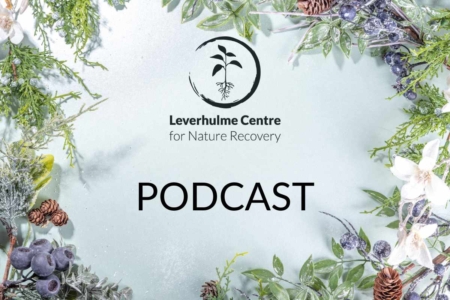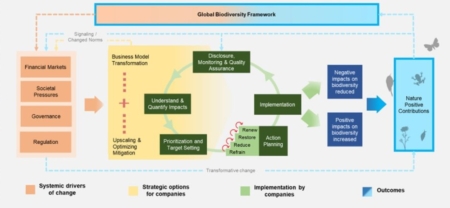Integration Research Theme
Developing a novel Analysis and Decision Platform to integrate nature recovery into land-use and infrastructure planning, and exploring scenarios that can deliver local, national and international commitments to nature, climate change and sustainable development.

About
The emerging proliferation of nature recovery actions need to be coordinated, and the vast amounts of data need to be analysed, in a way that satisfies the wide range of aspirations and values that people and organisations have for nature recovery. We also need to support the delivery of local, national and international ambitions and commitments to nature, health, human rights, food production and climate change mitigation. These commitments have synergies and overlaps, but also trade-offs that need to be exposed and navigated.
To tackle this challenge, we will build an Analysis and Decision Platform that integrates the scientific insights and societal considerations developed though our Ecology and Society Themes, with large and complex data developed through our Scale Theme. State-of-the-art AI tools will help design new approaches for collective decision-making within and across landscapes.
The knowledge system will first be applied and tested in detail in our Case Studies. The system will enable us to connect human insights with multi-scalar datasets to inform local decision making and integrate local outcomes with global drivers and targets. This will allow us to investigate the design features of new forms of collective intelligence and will, thus, become a testbed for governance and finance innovations for nature recovery.
In this theme we will also explore how synergies and conflicts between nature recovery, other social and cultural values, and other development objectives that compete for land (agriculture, urbanisation, infrastructure) can be integrated at different spatial scales. We will also explore how different elements of nature recovery combine and scale, leading to integrated strategies for nature that match local and organisational contexts and goals, building resilience for ecosystems and society, while also contributing to national and international goals.
Projects
Theme outputs
- Integration
- Integration
- Integration
Sven Wunder, Cecilia Fraccaroli, Joseph W. Bull, Trishna Dutta, Alison Eyres, Megan C. Evans, Bo Jellesmark Thorsen, Julia P.G. Jones, Martine Maron, Bart Muys, Andrea Pacheco, Asger Strange Olesen, Thomas Swinfield, Yitagesu Tekle Tegegne, Thomas B. White, Han Zhang, Sophus O.S.E. zu Ermgassen (2024). Biodiversity credits: learning lessons from other approaches to incentivize conservation.. Preprint.
Biodiversity credits are an emerging vehicle for pro-environmental financing. Here we define and delimit biodiversity credits and explore the pathways through which credits can be issued. We scrutinize early evidence from pilots and suggest lessons from other market-based incentives for conservation and climate mitigation, including biodiversity offsets and forest carbon credits that have attracted large private funding flows, but have been questioned regarding their additionality, permanence, and leakage. All these issues apply to biodiversity credits, but they face yet another challenge: rendering biodiversity commensurable. While new monitoring technologies can help quantify biodiversity, tradeoffs exist between simple metrics that enable liquid markets, and costly ones that more adequately represent biodiversity. To avoid carbon and offset market mistakes, biodiversity credit design, implementation, and impact evaluation requires more robust crediting baselines, standards, and governance. Quality credits will be more expensive than those cutting integrity corners, which may dampen the expected biodiversity credit boom
Maron, M., Quétier, F., Sarmiento, M., ten Kate, K., Evans, M. C., Bull, J.W., Jones, J. P. G., zu Ermgassen, S. O. S. E., Milner-Gulland, E. J., Brownlie, S., Treweek, J., von Hase, A. (2023). ‘Nature positive’ must incorporate, not undermine, the mitigation hierarchy. Nature Ecology & Evolution .
For the concept of nature positive to succeed as the lodestar for international action on biodiversity conservation, it must build upon lessons learned from the application of the mitigation hierarchy — or risk becoming mere greenwash.
Sven Wunder, Cecilia Fraccaroli, Joseph W. Bull, Trishna Dutta, Alison Eyres, Megan C. Evans, Bo Jellesmark Thorsen, Julia P.G. Jones, Martine Maron Bart Muys, Andrea Pacheco, Asger Strange Olesen, Thomas Swinfield, Yitagesu Tekle Tegegne, Thomas B. White, Han Zhang, Sophus O.S.E. zu Ermgassen (2024). PREPRINT: Biodiversity credits: learning lessons from other approaches to incentivize conservation. .
Biodiversity credits are an emerging vehicle for pro-environmental financing. Here we define and delimit biodiversity credits and explore the pathways through which credits can be issued. We scrutinize early evidence from pilots and suggest lessons from other market-based incentives for conservation and climate mitigation, including biodiversity offsets and forest carbon credits that have attracted large private funding flows, but have been questioned regarding their additionality, permanence, and leakage.
News & events
-

If you believe…An alternative vision for role of the state with Dr. Sophus Zu Ermgassen
14 March 2024What role does the state have to play in nature recovery? If we are serious about halting the decline in biodiversity do we need to lay out a more ambitious agenda that can unify the currently fragmented aspects of private nature finance, state intervention and the role of public sector institutions. This is part of […]
news Podcast -

Pioneering Nature-Positive Pathways: Organisational Approaches for delivering Nature Recovery
13 November 2023The Global Biodiversity Framework calls upon the private sector to contribute to nature recovery. But so much about the concept of Nature Positive is ill defined, making it challenging for businesses (and society as a whole) to understand the major shifts required to achieve it. More research is crucial to help guide and prioritize business […]
news Blog













